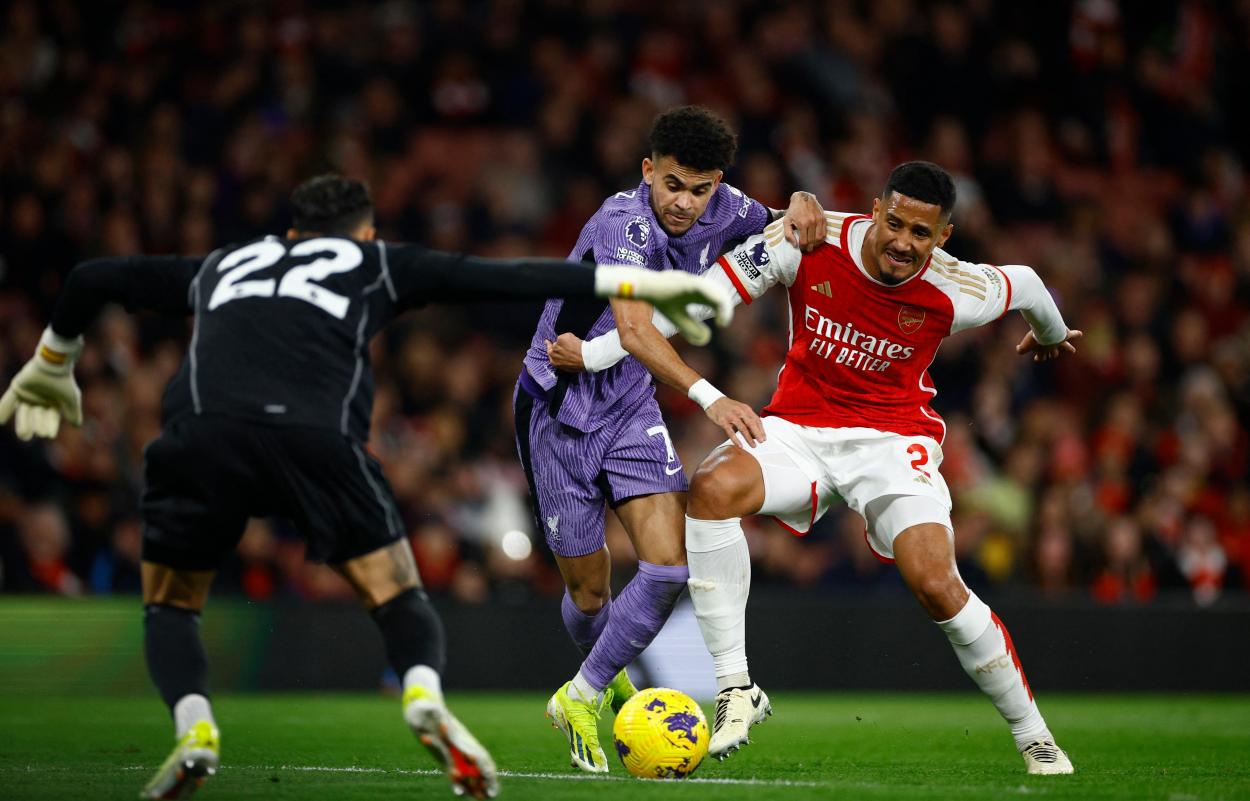Arsenal with a stronger finish
Starting with Arsenal, the data reveals a strong start and an even stronger finish, indicating their ability to maintain high levels of performance throughout the match. With 5 goals scored and 2 conceded in the first 10 minutes, escalating to 14 goals scored and 5 conceded in the last 10 minutes, it highlights Arsenal's effectiveness in both opening and closing stages of the game. This pattern suggests a well-prepared team that starts games aggressively and also has the stamina and strategy to finish strong.
Aston Villa shows a different pattern, with a relatively balanced approach across the match but with notable spikes. Their ability to score goals increases significantly in the middle segments of the game, particularly between the 21st and 30th minutes, where they scored 12 goals and conceded 3. This mid-game surge could indicate a strategy of building into the game and exploiting opportunities as opponents begin to tire or lose focus.
Bournemouth's statistics display a struggle for consistency, with an evenly distributed pattern of goals scored and conceded across most time segments. However, they seem to face particular challenges in the closing stages of the first half and the beginning stages of the second half, suggesting potential issues with maintaining focus around these critical transition periods in a match.

Chelsea, on the other hand, exhibits a strong resilience in the latter stages of the game, with their goals scored significantly outweighing those conceded, especially in the final 10 minutes (9 scored vs. 12 conceded). This might reflect a tactical emphasis on physical conditioning and late-game pressure to overcome opponents.
Liverpool stands out with an extraordinary performance in the final 10 minutes, scoring 17 goals and conceding only 3. This remarkable statistic underscores their lethal efficiency in the closing stages, likely leveraging high pressing and fast-paced attacking strategies to break down opponents' defenses when they are most vulnerable.
Sheffield United presents a cautionary tale, with their stats indicating substantial defensive vulnerabilities, particularly in the first half of the game. The stark contrast of 1 goal scored to 11 conceded between the 21st and 30th minutes is a glaring indicator of their struggles to maintain defensive solidity during early to mid-game phases.
Manchester City and Manchester United both demonstrate strong overall performances, with Manchester City showing exceptional ability to control the game in its early stages, and Manchester United displaying a more balanced approach throughout, with a slight edge in their first-half performance.
Tottenham and West Ham United, both teams show commendable offensive capabilities, particularly in the latter stages of the game. Tottenham's consistent scoring ability and West Ham's resilience in bouncing back in the second half highlight their strengths in maintaining offensive pressure and exploiting late-game opportunities.
Percentages of score in second half
On a broader scale, the league's second-half goal percentage stands at a dominant 59%, underscoring the significance of endurance and tactical shifts post the interval. The matches' average goal times — with the first at 30 minutes and subsequent goals stretching into the later stages — paint a vivid picture of match dynamics and the evolving nature of play within the 90 minutes.
Looking at the goals by 15-minute segments, a clear pattern emerges, highlighting the intensity of the latter stages. The '61-75' and '76-90' segments see an escalation in goals, with the latter marking the highest concentration of scoring activity.

The early scoring analysis indicates that in matches where a goal is scored in the first 15 minutes, teams tend to continue finding the net throughout the rest of the match, averaging 2.82 goals per match from the 16th to the 90th minute.
This season has also seen a trend in the '41-50' and '81-90' segments, where added time has proven crucial for teams to either claw back into the game or seal their victory.
Conversely, the ability to score in the final minutes speaks volumes about a team's depth and bench strength. Substitutions made in the latter half can have a profound effect, with fresh legs and tactical changes often tilting the scales in favor of a side that's trailing or looking to cement their lead. Teams like Manchester United, while not leading in total goals, have shown an ability to turn up the heat in the latter stages, a characteristic that can be the difference between a successful season and a mediocre one.
Moreover, the timing and context of late goals can often have a psychological ripple effect that extends beyond the current match. For instance, a late equalizer or winner can boost morale and team spirit, carrying positive momentum into subsequent games. On the flip side, conceding late can have a demoralizing effect, potentially leading to a downturn in form.
The Premier League's late-game goal statistics offer a rich tapestry that narrates the ebb and flow of footballing drama. As the data reveals, the final minutes are not merely about the goals scored; they reflect the strategic depth, the physical preparation, the capacity to exploit fleeting moments of weakness, and the unyielding will to succeed that Premier League teams embody.










































